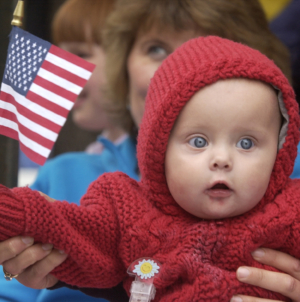-
Walmart Lays Off Employees in Three States: What To Know - 41 mins ago
-
State moves to suspend licenses of troubled L.A. nursing home companies - 44 mins ago
-
Trump and Musk Trade Threats, From Broaching Impeachment to Cutting Contracts - 51 mins ago
-
Woman Leaves Camera To Film Her Sea Dip—Seagull Steals the Show - about 1 hour ago
-
Michele Kaemmerer, first transgender LAFD captain, dies at 80 - about 1 hour ago
-
Medical Care for Transgender Youth: ‘The Protocol’ Podcast - 2 hours ago
-
Child Tax Credit Could Be Stripped From Millions of Children - 2 hours ago
-
Former L.A. County sheriff’s oversight official faces investigation - 2 hours ago
-
Cuomo Was Contrite About His Sexual Harassment Scandal. Not Anymore. - 2 hours ago
-
Man Travels 400 Miles To Give Shelter Dog a Forever Home - 2 hours ago
Hamas Says US Ceasefire Veto Violates ‘American Values’
A senior Hamas official has slammed America’s decision to exercise its veto power against a United Nations Security Council draft resolution calling for an immediate ceasefire in the Gaza Strip, arguing the decision ran contrary to the ideals that Washington purports to promote on the world stage.
The move, which put U.S. Chargé d’affaires to the U.N. Dorothy Shea at odds with the representatives of all 14 other nations at the gathering Wednesday, including five U.S. allies, came as talks being mediated by President Donald Trump’s administration between Israel and Hamas in Qatar appeared to remain deadlocked.
Yet amid uncertainties over the course of the talks, Basem Naim, a Hamas Political Bureau member and spokesperson, told Newsweek that “regardless of its impact on the course of negotiations, this American behavior is shameful and reprehensible.”
“How could the American representative at the United Nations raise her hand against a Security Council resolution that could save the lives of thousands of innocent people?” Naim asked.
“The repeated use of the veto in favor of Israel by successive American administrations confirms that American bias in favor of Israel is a consistent policy,” he said, “regardless of the ruling administration and regardless of Israel’s behavior and policies, which flagrantly violate international law, as well as the values America promotes as supreme values.”

LEONARDO MUNOZ/AFP/Getty Images
US Defends Vote
Following the veto, Shea argued that the decision “should come as no surprise,” calling the draft resolution “unacceptable.”
“The United States has been clear: we would not support any measure that fails to condemn Hamas and does not call for Hamas to disarm and leave Gaza,” Shea said.
The U.S. ambassador urged fellow council members to apply greater pressure to Hamas, asserting that the group still posed a threat to Israel nearly 20 months since its October 2023 attack that sparked the ongoing war. She also accused Hamas of repeatedly refusing to accept U.S.-backed proposals, including a recent offer put forth last week by Trump’s Middle East envoy, Steve Witkoff.
Shea said she believed the vote was “designed to draw a veto as evidenced by the process of formulating this resolution,” and slammed the process as “shameful.”
The veto marked the fifth time the U.S. has vetoed a U.N. Security Council draft resolution calling for a ceasefire in Gaza since the conflict began. Former President Joe Biden’s administration also vetoed similar resolutions and abstained on one measure in March of last year.
The draft resolution brought to the council on Wednesday was cosponsored by Algeria, Denmark, Greece, Guyana, Pakistan, Panama, Sierra Leone, Slovenia, Somalia and South Korea. Also voting in favor were fellow permanent council members China, France, Russia and the United Kingdom.
The text demanded “an immediate, unconditional and permanent ceasefire in Gaza” as well as the “immediate, dignified and unconditional release of all hostages held by Hamas and other groups” and an “immediate and unconditional lifting of all restrictions” on humanitarian assistance entering Gaza.
Secretary of State Marco Rubio described the U.S. veto as a “strong message” against a “counterproductive UN Security Council resolution on Gaza targeting Israel” in a statement issued Wednesday.
“The United States will never stop working to free all the hostages,” Rubio said. “We will continue supporting the delivery of aid to Gaza, without Hamas’ interference, and ensure that Hamas and other terrorists have no future in Gaza. The United States will continue to stand with Israel at the UN. The United Nations must return to its original purpose—promoting peace and security—and stop these performative actions.”
Israel Welcomes Veto
Israeli Permanent Representative to the U.N. Danny Danon expressed gratitude to the U.S. for its position following the resolution’s failure.
“We thank the United States for standing on the right side,” Danon said. “For standing on the side of truth, justice, and moral clarity. Thank you for refusing to abandon the hostages and for refusing to legitimize the lies of this resolution.”
He argued that the message of the resolution to Hamas would have been to “reject every deal and the international community will still reward you, hold innocent civilians hostage and the UN will still give you legitimacy, continue the war and the pressure will still fall on Israel, not on the terrorists who started this war.”
Israeli Prime Minister Benjamin Netanyahu also shared his appreciation to the U.S., as well as Trump, in a statement published by his office on X, formerly Twitter, “for once again showing our enemies that there is no daylight between us.”
“That is the only way to destroy the Hamas terrorists who are still holding 58 innocent hostages in the dungeons of Gaza,” Netanyahu said. “The civilized world should demand their immediate and unconditional release.”
As negotiations proceed in Qatar, reports have surfaced of an apparent rift between Trump and Netanyahu on several key issues, including the war in Gaza, strikes against Israel launched by Yemen’s Ansar Allah movement, also known as the Houthis, U.S.-Iran nuclear talks and the new Syrian government.
Both sides have sought to downplay the speculation, however, asserting that Trump and Netanyahu remained in alignment.
Violence Continues
With no breakthroughs occurring either in New York or Doha, battles rage on in Gaza. Both the Israel Defense Forces (IDF) and Hamas’ Al-Qassam Brigades, as well as other allied Palestinian factions, have claimed new operations on a regular basis since a previous truce deal reached in January ultimately collapsed in March.
Netanyahu, who has vowed to continue the conflict until Hamas was defeated and all remaining hostages released, has since overseen intensified military operations under the name “Operation Gideon’s Chariot.”
A string of deadly incidents has also unfolded at aid distribution points being administered by Gaza Humanitarian Foundation, a U.S.-backed organization that remains the only entity approved by Israel to provide assistance in the Palestinian territory.
Israel and Hamas have blamed one another for the attacks, which Hamas’ Government Media Office has estimated led to the deaths of more than 100 people in recent days.
Since the Hamas-led attack that Israeli officials say killed around 1,200 people in October 2023, the Palestinian Health Ministry in Gaza has recorded the deaths of more than 54,600 people in the territory. The IDF has reported on 420 deaths among its own ranks since beginning ground operations in Gaza.
After the U.S. veto at the Security Council meeting Wednesday, Riad Mansour, permanent representative of the U.N.-recognized observer State of Palestine, which represents the West Bank-based Palestinian National Authority, said a follow-up resolution would be pursued in the U.N. General Assembly. No nation wields a veto over resolutions passed by the 193-member body, though its measures are non-binding.
“We will be heading to the General Assembly in the coming days, but let us be clear,” Mansour said. “What can stop this genocide are immediate and real measures by states to deter Israel from prolonging this aggression against the Palestinian people and forcing it to stop the mad march it is embarked on across the occupied Palestinian territory.”
Source link


















